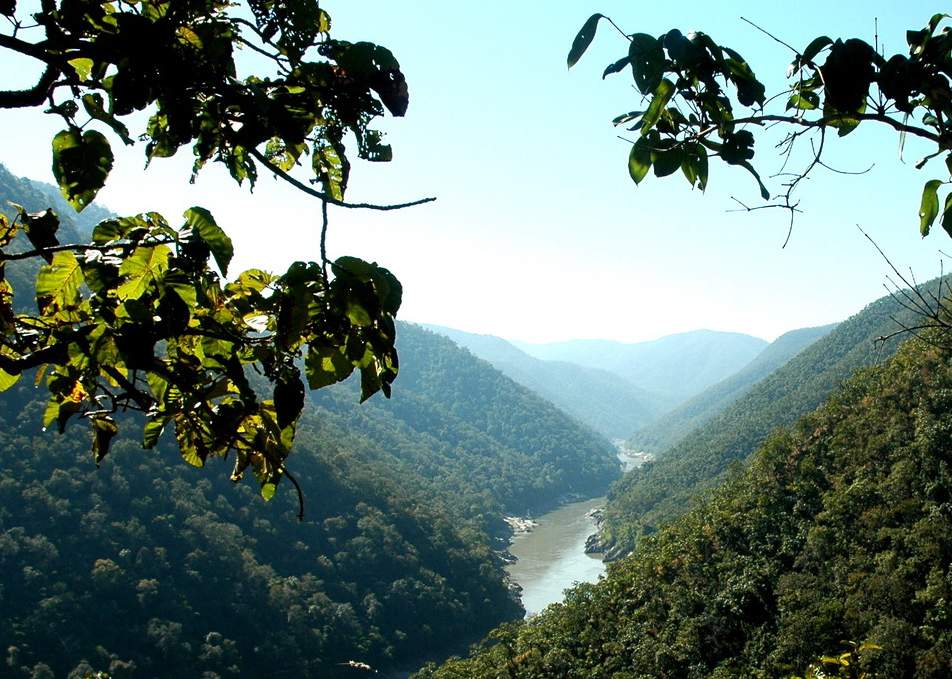People living along the Salween River are calling for a review of plans to build mega-dams on the river ahead of an official visit to Thailand by Burma’s State Counsellor Aung San Suu Kyi this week.
In a statement released yesterday by environmental watchdog organisation International Rivers, 20 community groups from Burma and Thailand urged Suu Kyi not to commit to the planned hydropower projects when she meets with Thai officials tomorrow, citing concerns about their social and environmental impact.
Another issue, according to the statement, is that the proposed dams present “potential grave impacts on the human rights of local people, including ethnic peoples in Shan and Karen States,” due to longstanding conflicts in the region.
Opposition has been growing against two dams in particular — the 1,360-MW Hatgyi Dam in Karen State and the 7,100-MW Mong Ton Dam in Shan State — because of fears that people displaced by conflict could permanently lose their homes if the dam projects go ahead as planned.
“It’s not good to continue at this moment because of the conflict sensitivity and the lack of information transparency and [the need to address] community concerns,” said Paul Twra of the Karen Environmental and Social Action Network (KESAN), speaking to DVB on Wednesday.
He added that “a more comprehensive study” examining the environmental impacts, the human rights of local people and the risk to ongoing peace talks needs to be considered.
In the background of Suu Kyi’s 23-25 June visit, KESAN said it is continuing its efforts to win support for a proposed Salween Peace Park in the area where a consortium of Thai, Chinese and Burmese corporations plans to build the Mong Ton Dam, the largest of six proposed dams on the river.
After an initial consultation in May with the Karen National Union and villagers in Karen State’s Mutraw District, KESAN said it has received strong local support and has since been able to draw up proposed boundaries for the park.
“This vision builds upon nearly two decades of grassroots work for community-based conservation and sustainable livelihoods in Karen areas,” said Paul Twra.
KESAN said the next step in the creation of the Peace Park would be engaging with wildlife experts before their next consultation in December.
Dr Nonn Panitvong, who directs a team of biologists from the Thai conservation group Siamensis, said he is offering his support and expertise to villagers by studying the biodiversity in the area and helping them read the environmental impact assessments.
According to Panitvong, the migratory patterns of the local fish population will be directly impacted by the dams along the Salween River, something that will affect people who depend on the river for their livelihood.
[related]
“The way Asian fish migrate is they move upstream and then the larvae will flow down with the river, but when they build the dam they create an area of stagnant water, so the larvae will not flow down,” he said.
Siamensis sent a team of biologists to study the area last year and discovered a new species of cricket, highlighting the need to protect the biodiversity of the area for future study.
“The Salween hasn’t been as well studied as the Mekong so we don’t even know what species we are about to lose,” said Panitvong.



